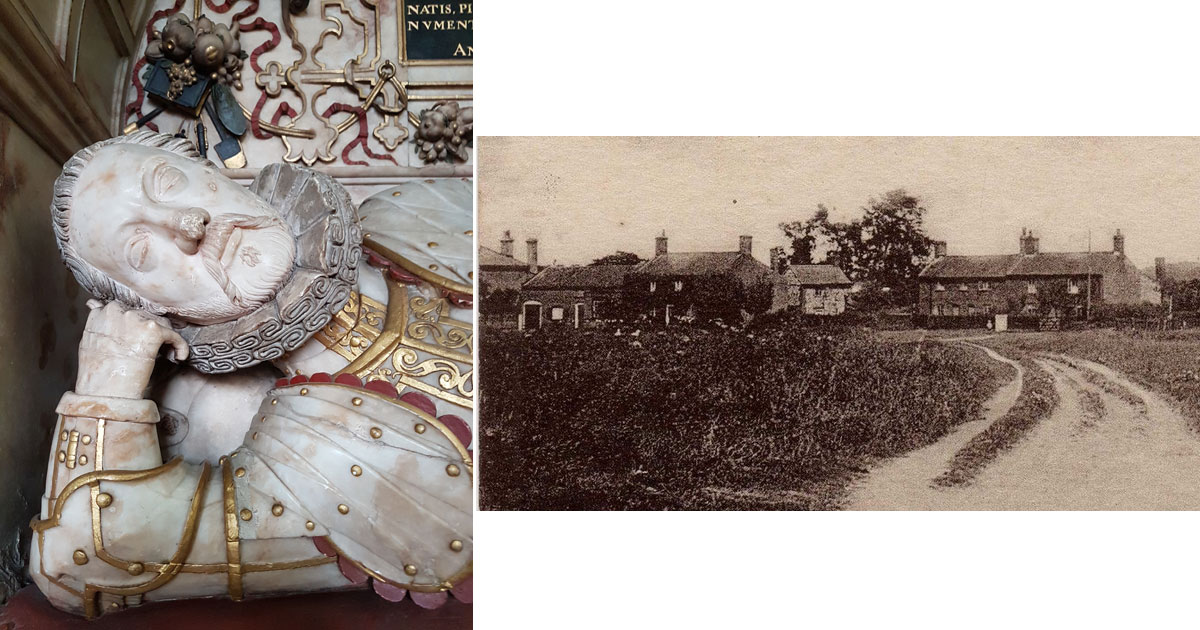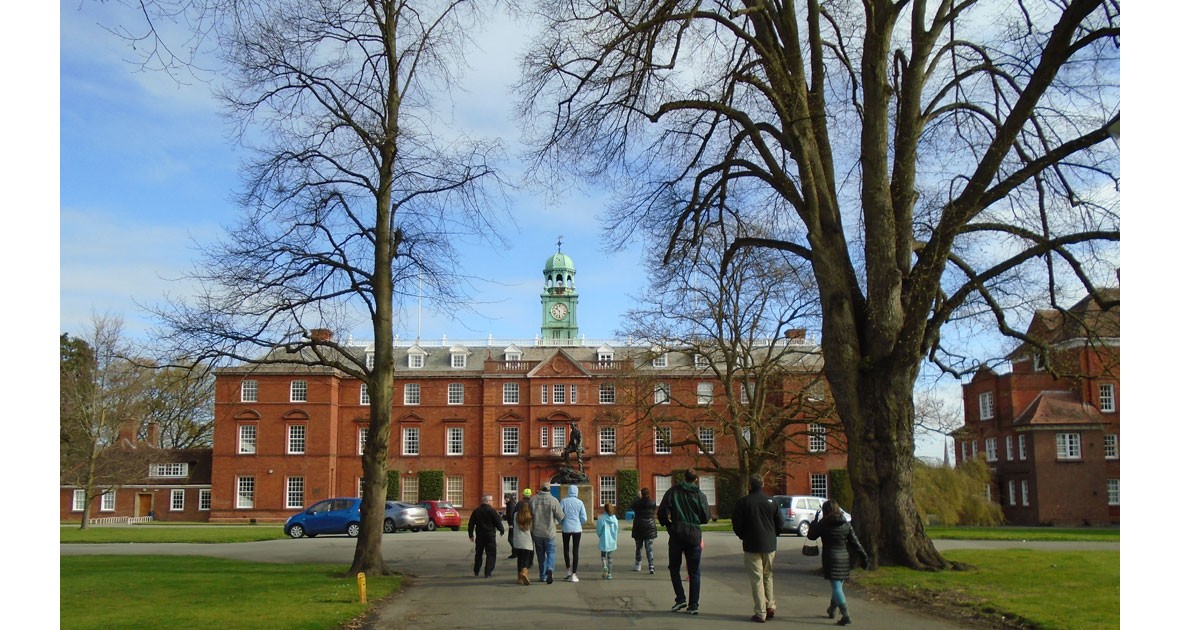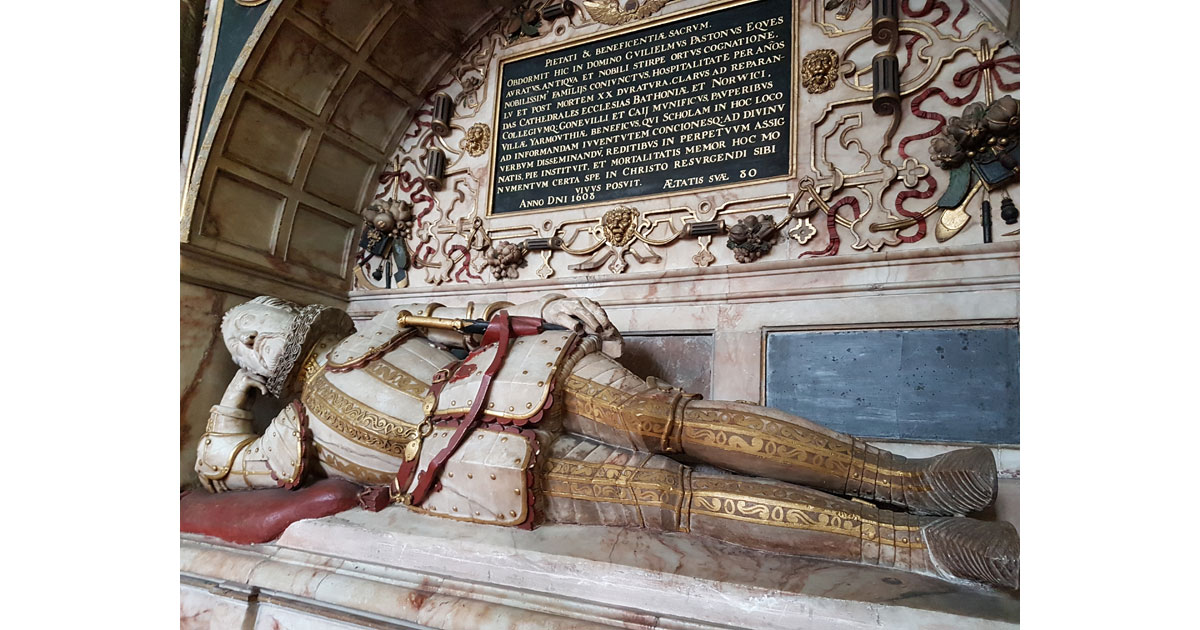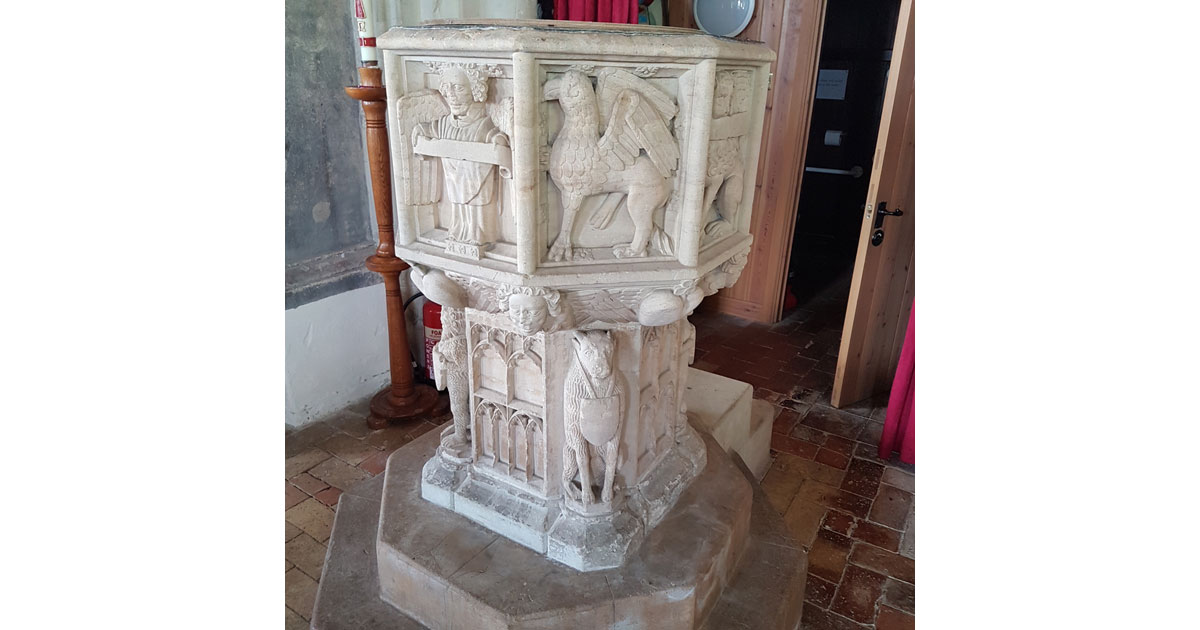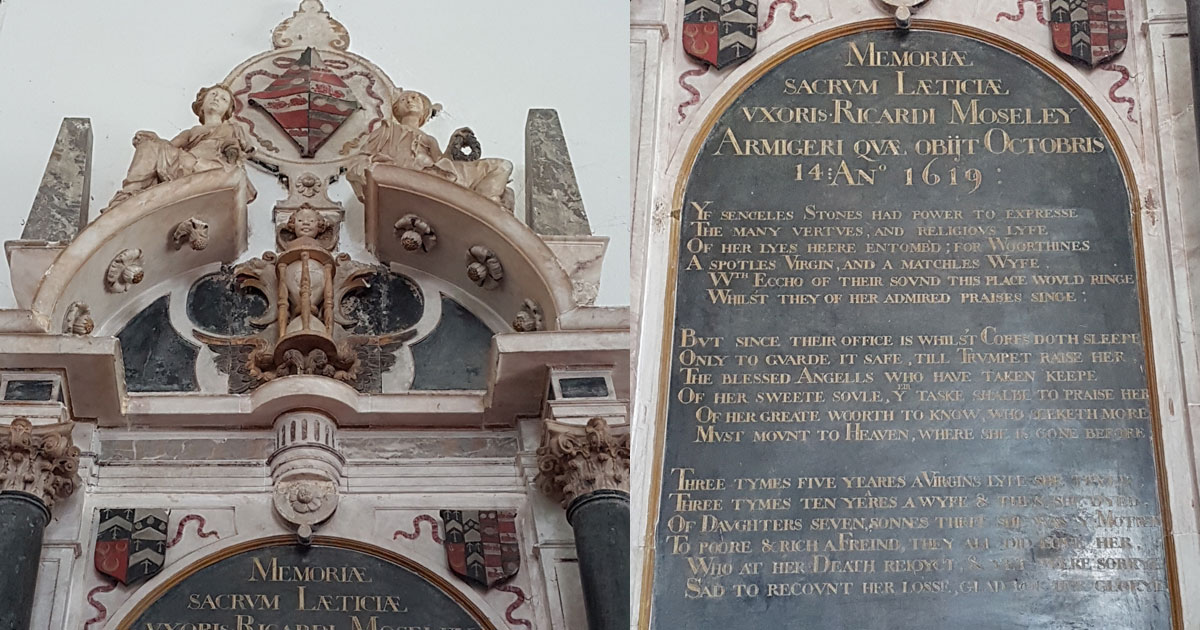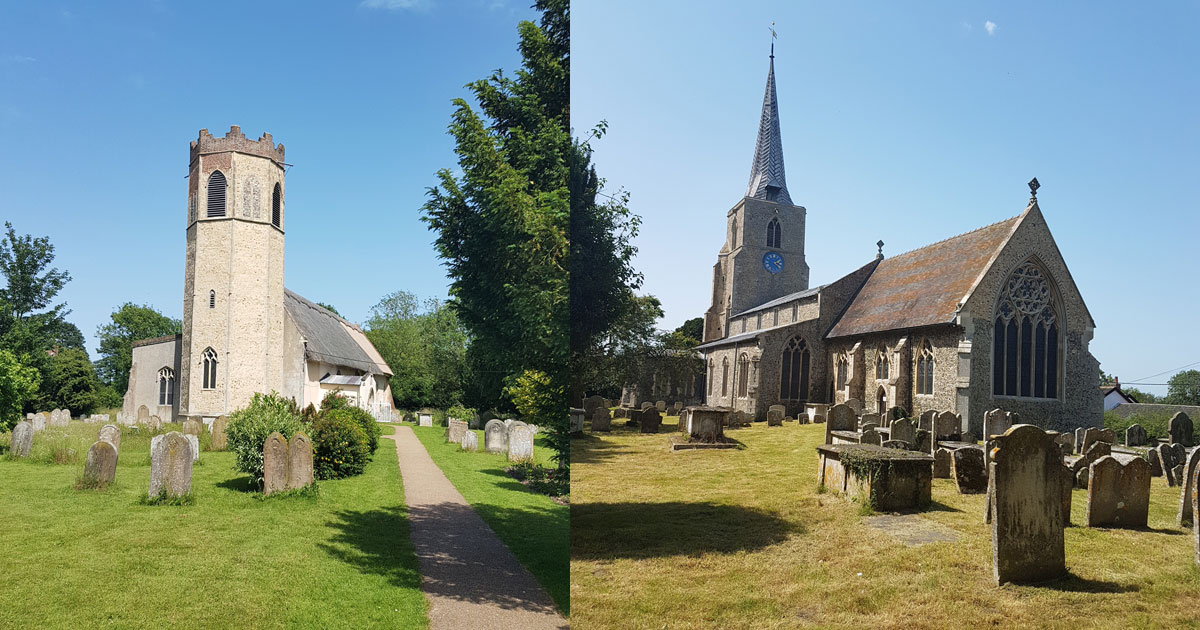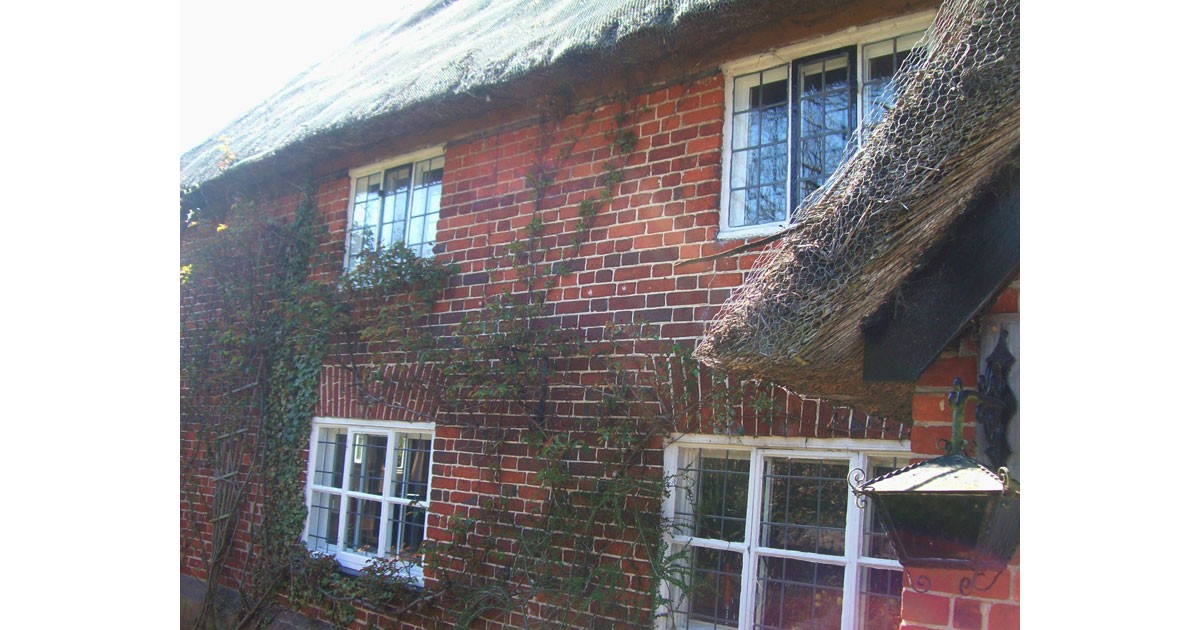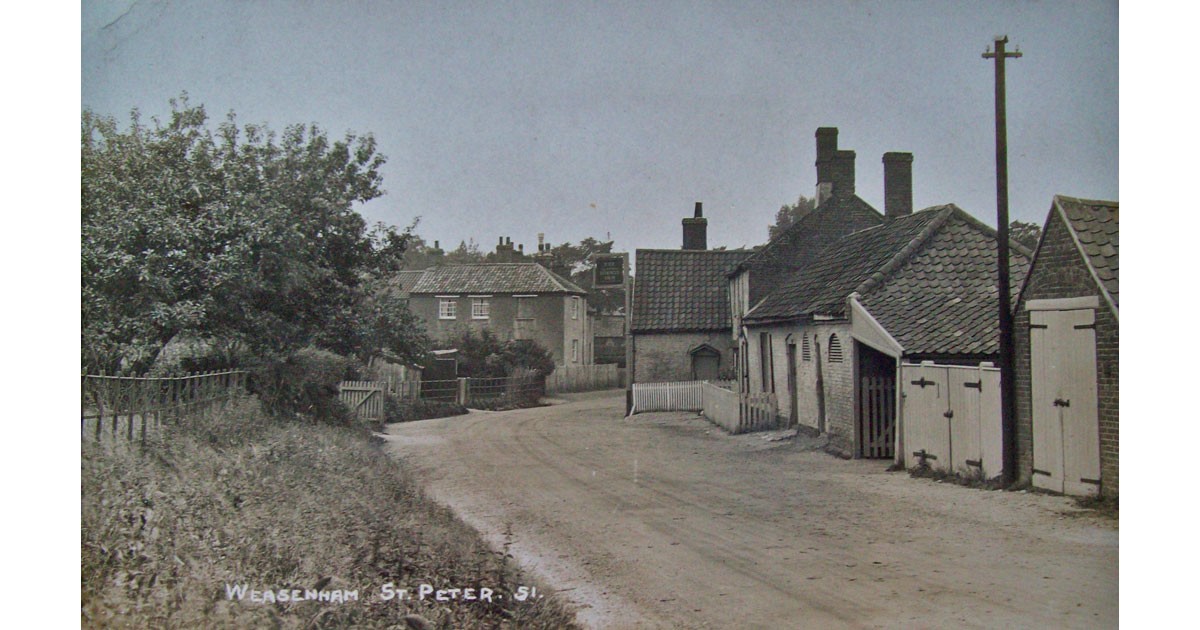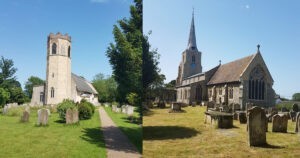SUMMER FAMILY HISTORY ADVENTURES
By Glynn Burrows, family history expert and owner of Norfolk Tours
BIG BLEND RADIO INTERVIEW : Glynn Burrows discusses family history research, and Steve Schneickert recalls the Hollywood History of Ellis Island. Listen to the show / podcast on SoundCloud.com, or YouTube.com.
: Glynn Burrows discusses family history research, and Steve Schneickert recalls the Hollywood History of Ellis Island. Listen to the show / podcast on SoundCloud.com, or YouTube.com.
In the UK, our weather can be pretty chilly between October to April, so, to enjoy being outside without being wrapped up in layers of clothing, the Summer, when it is generally quite warm, is a great time to explore.
This year, it has been unusually hot already, but we normally expect June, July and August to be our warmest months. If you don’t mind wearing a jacket, May and September are often bright and sunny too, but the one thing about the UK, is to expect rain at any time. That’s why our countryside is so beautiful and green!
Although I am going to talk about the UK, exploring your family history on a vacation applies to anywhere in the world. I’ve carried out family history visits in Canada, as well as France, and obviously the UK, so the methods are the same where-ever you are.
The first thing is to carry out as much research as possible before you go. Time during a vacation is limited and the last thing you want to do is spend all day looking for something while you are away, which you could have done sitting in your living room on a Winter’s evening.
As an example, if you want to go and look at a gravestone, check out if the graveyard has been indexed already. There are many websites for gravestones and they can save you hours, if not days, of searching. Some cemeteries are massive and, if you have no idea where a grave is, you may never find it, even if it is there. Just use a search engine and put in “find a grave” or “locating burial sites” and see the sites which come up, but don’t just rely on those results. If you know where your ancestors lived and died, contact that town or village’s historical society and ask if their graveyards and cemeteries have been indexed. Contact local libraries in the nearest towns. Contact the local historical record depositary and ask them if they have any records or indexes. In the UK, the County Record Office is the place where lots of indexes are deposited. Many of these large libraries and record offices have their catalogues online. Worth doing all this research while you are stuck indoors, bored, on a wet Saturday afternoon.
The second thing to do is to carry out as much research as possible before you go. Yes, that’s number one and two! As you will see above, there will be local history societies, local history buffs, local libraries, etc., etc. When you make contact with these people and places, ask questions. You may be looking for gravestones, but the people you contact may have a wealth of information and, if they are passionate about their subject, they will love to share their passion with someone who shares their interest. Don’t forget, you have information they will be pleased to add to their files too. (As a local and family historian, I love to hear from people connected to my village or my families. They often fill in gaps in my information and, to find out what happened to someone I had “lost” is amazing.)
The third thing to do is to carry out as much research as possible before you go. Yes, I can’t stress that enough. The more you do before your feet hit the ground in the place you are going, the better. Plan, plan, and plan some more. See if there is a bed & breakfast in the place you are going, as staying in the same place where your ancestors lived is amazing and it will give you more time to explore and just have a wander. Find out where you can park while you are visiting specific places. Make sure you know if the Church is open and, if not, where you can get the key from. Look for the local pub or cafe, so you have somewhere to eat and for the other obvious comfort needs. If you have made contact with any local historians, try to arrange your trip so you can meet them.
The fourth thing to do is to take some presents for your friendly local experts. (No, I don’t mean a bottle of Whisky or a box of chocolates.) Take a photocopy of the tree which shows what became of the person who left the place you are visiting. If you have any photographs, take copies of those too. If you have written a book about the ancestor, give a copy to the local library or record office and be sure to leave them all your contact details. You never know when another relation or like-minded person may turn up in the town and you want to be contacted if that happens!
When you do go on vacation, DO NOT TAKE ORIGINALS of anything. Scans, copies, and even photographs on your ‘phone, but not the originals. Baggage gets lost and things get left on buses or in hotel rooms. Copies are cheap, originals are priceless.
The fifth thing is to carry out more research……………, no, the fifth thing is to take as many photographs of everything as you can, while you are there. You may not get the chance to go back and, with today’s cameras, you can download your pictures onto your laptop ten times a day if you need to, so take the pictures and, when you get home, you can delete the twenty-seven pictures of the floor and keep the two of the grave which show the writing in the best light. (That’s another thing. If you find the gravestone is illegible, if you are staying in the town, go at different times of the day when the sun is in a different position. It could be easier to read.) Start each bundle of photographs with either a hand-written note of where you are and what the date is. On a vacation, you will take thousands of pictures and sorting them out afterward will be so much easier if the first picture has “Norwich St. Peter Mancroft Church start” and the last has “Norwich St. Peter Mancroft end” at the beginning and end of that batch of photos.
Other things you could do on vacation: Visit the actual house your ancestor lived in. Go to the Church he/she was baptised, married, or buried. Visit where they worked. Have a drink in their local pub. Chat to the locals. (You could well be chatting to a cousin!)
All of the above is possible, with lots of research and, as this is what I do for my guests, I know.
Glynn Burrows is the owner of Norfolk Tours in England. For help or advice about tracing your family history, or if you are thinking about taking a vacation to England visit www.Norfolk-Tours.co.uk





